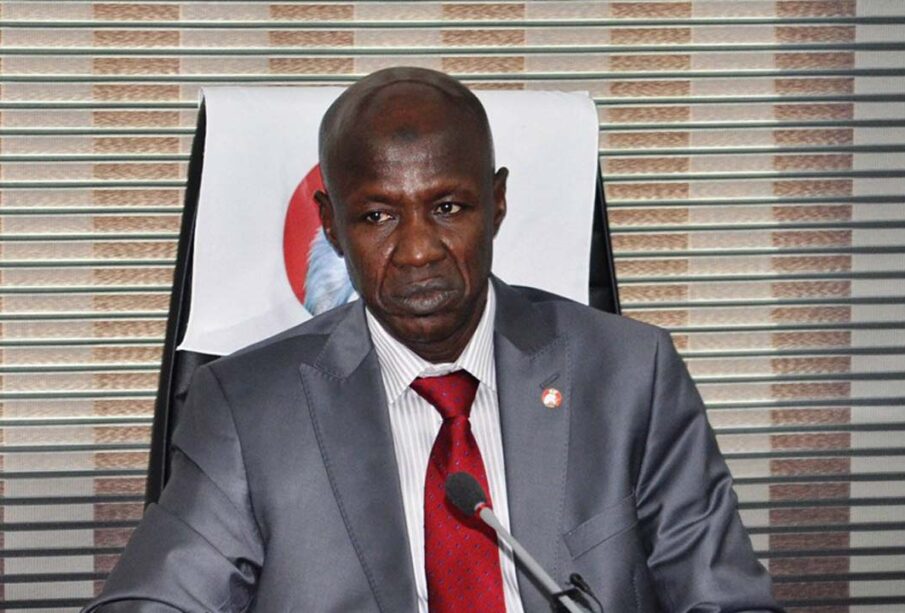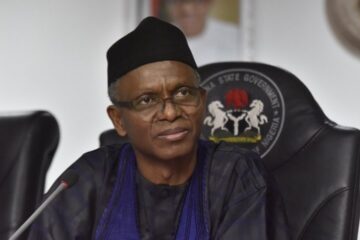P&ID judgment, EFCC and facts of the matter

By Akin Popoola
In the wake of a landmark victory for Nigeria at the Commercial Court of England and Wales, which stopped the enforcement of an $11.5billion Process & Industrial Developments (P&ID) Limited arbitration award against the country over a failed 2010 deal to develop a gasoline processing plant within the nation, the Federal Government of Nigeria, Nigerians, policymakers, media professionals, and other critical stakeholders have lauded the significant triumph, bringing an end to a protracted legal battle between the Federal Government and the P&ID.
While celebrating the 141-page judgment of Justice Robin Knowles of the Commercial Courts of England and Wales, which stopped the enforcement of the $11.5billion arbitration award by P&ID Limited against Nigeria, it is imperative to remember and celebrate the former acting Chairman of the Economic and Financial Crimes Commission (EFCC), Ibrahim Magu, a patriotic Nigerian who was maligned, fought, harangued, and humiliated out of office. It was his tears, his blood, and his sacrifices that have contributed to the victory that all Nigerians are celebrating today.
It is also important to state that there is the need to celebrate the members of the P&ID Unit that Ibrahim Magu established, who worked tirelessly, most times through the night, for years, to unravel the fraud, money laundering and corruption scheme aimed to cripple Nigeria.
While this groundbreaking judgment has drawn the attention of both local and international stakeholders, with many commending the Federal Government of Nigeria for its audacious move and resilience, it is imperative for stakeholders to commend Magu for the pivotal role he played in unraveling the monumental fraud and questionable arrangements that led to the signing of a Gas Supply and Processing Agreement (GSPA) on January 11, 2010 between the Federal Government through the Ministry of Petroleum Resources (MPR) and Process & Industrial Developments Limited (P&ID).
As the world takes notice of this groundbreaking judgment and commends the Federal Government for its audacity, it is imperative to shed light on the indispensable role played by the EFCC under the leadership of Magu in uncovering the corrupt practices that resulted in the ill-fated GSPA signed on January 11, 2010 between the Ministry of Petroleum Resources (MPR) and the P&ID. The EFCC’s contributions, especially in the initial stages of this complex case, need to be recognized and appreciated to set the records straight.
Records show that in June 2018, Magu received a petition from the Office of the Honourable Attorney-General of the Federation (OAGF) and Minister of Justice, conveying directives from former President Muhammadu Buhari. These directives mandated discreet investigations into the circumstances surrounding the signing of the GSPA on January 11, 2010, between the MPR and P&ID. It was this pivotal moment that set the stage for a thorough examination of the questionable practices that led to a deal detrimental to Nigeria’s interests.
Incidentally, the EFCC’s discreet investigation exposed a web of monumental corruption that underpinned the ill-conceived agreement between the Federal Government and the P&ID. This revelation provided the impetus and essential evidence for the Federal Government to vigorously pursue justice and discard the agreement.
In Nigeria, it has been revealed that any man who is sincerely and genuinely committed to fighting corruption will face resistance, and many people believe that one of the reasons Magu was removed from office was his unwavering commitment to sanitising the Nigerian system through a sustainable anti-corruption campaign, one of the most significant aspects of which was the P&ID matter.
It is instructive to note that Sir Ross Cranston of Royal Court of Justice, London had in his 43-page judgment delivered on April 7, 2020 in case No CL- 2019- 000752 between the Federal Republic of Nigeria (Claimant) and the Process and Industrial Developments Limited (Defendant), acknowledged the tremendous investigation by the EFCC under Magu’s watch in establishing monumental fraud by the P&ID against Nigeria.
Having examined the submissions of the parties and the evidence before him , Justice Cranston consequently granted Nigeria’s application for stay of execution of the arbitral award which laid the favourable foundation for the latest judgment by Justice Knowles.
Justice Cranston also said in his landmark judgment that , “ The Attorney General’s letter to the EFCC of June 28, 2018, containing the President’s instructions, referred not to fraud but to a thorough investigation of the circumstances surrounding the GSPA and the subsequent events.
“In my view, Mr Mill (counsel to P&ID) underplayed the work which was undertaken over the June 2018-August 2019 period. In particular there was the successful prosecution of P&ID and P&ID Nigeria on 19 September 2019, based on the groundwork undertaken during this fifteen-month period.
“I accept that, compared to what happened after August 2019, it cannot be said that the investigation proceeded with the same sense of urgency. There is also Mr Malami’s letter, which became available after the hearing, and the investigation being carried out into the conduct of Mr Magu as acting head of the EFCC at the time.
“With respect, I find it hard to read the letter as an attack on Mr Magu alone and not on the performance of the EFCC under his leadership. Mr Magu’s reference to the staggering volume of work done by the EFCC after June 2018 – if that is what his letter says – might be treated as special pleading.
“In my view, however, this does not assist P&ID in its argument that reasonable diligence was lacking. There is certainly nothing to suggest that a deliberate decision was taken in the Takhar sense not to investigate fraud. Nor is there anything to suggest that there was a deliberate decision to proceed slowly.
“What occurred might have been the EFCC proceeding at its normal pace, in light of the resources allocated to it, the other inquiries it was conducting, and conditions in Nigeria.
“By comparison, the position after August 2019 might be exceptional and prompted by the serious position Nigeria faced in the light of Butcher J’s decision on P&ID’s enforcement application. At this point it is impossible to say.
“However, I cannot accept Mr Mill’s submission that there was no proper or diligent investigation. The basic point is that there was no specific information such that Nigeria ought to have become aware of the building blocks of the fraud now alleged.
“Nigeria has to my mind, made a strong prima facie case in fraud in its serious irregularity challenge. On closer investigation this is not the type of case Butcher J rightly warned about in his judgment ordering the present hearing, where a party who has been unsuccessful in the arbitration alleges fraud in relation to the procurement of the underlying contract or in relation to the conduct of the arbitration, when that was not properly investigated at the time of the arbitration: The Federal Republic of Nigeria v Process & Industrial Developments Limited [2020] EWHC 129 (Comm), [31].Factor (vii): [2013] 1 Lloyd’s Rep 86, [33].
“For the reasons I have given, P&ID has contributed to the delay, and it will not by reason of the delay suffer irremediable prejudice in addition to the mere loss of time if the application is permitted to proceed. Although not a primary factor, fairness in the broadest sense favours an extension in this case.”
Granting Nigeria’s application for stay of proceedings over the unfair and fraudulent arbitral award, Justice Cranston then said, “For the reasons given, I grant Nigeria’s applications for an extension of time and relief from sanctions “
As Nigeria joins other countries in the world to tackle corruption and its negative effects on mankind, it is important to remind the stakeholders that the fight against corruption is a collective responsibility and we must join hands in reducing the corrosive impacts of the big elephant in the room to barest minimum.
Popoola, a public affairs analyst, contributes this piece from Lagos











